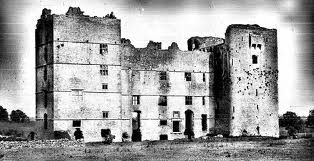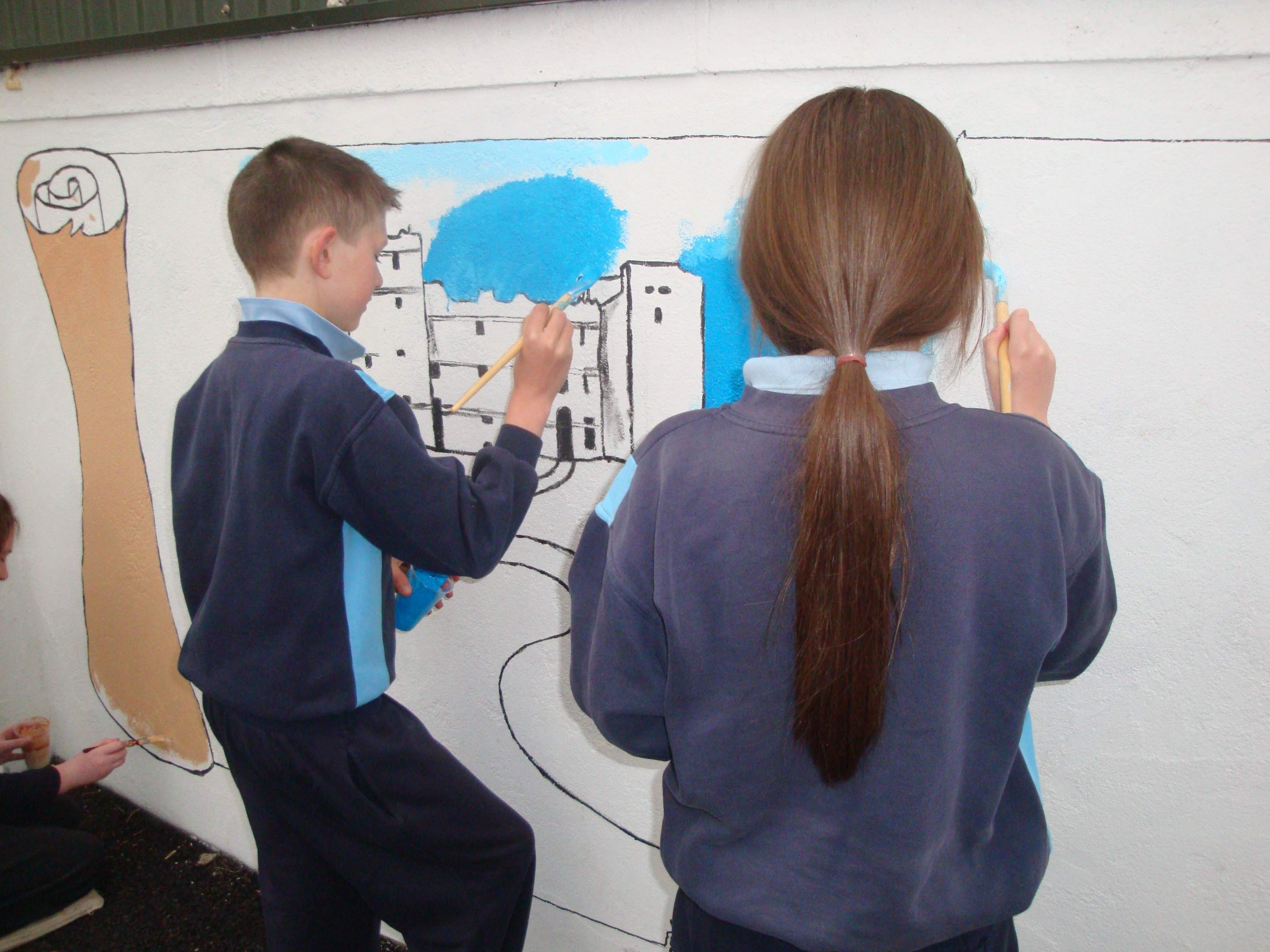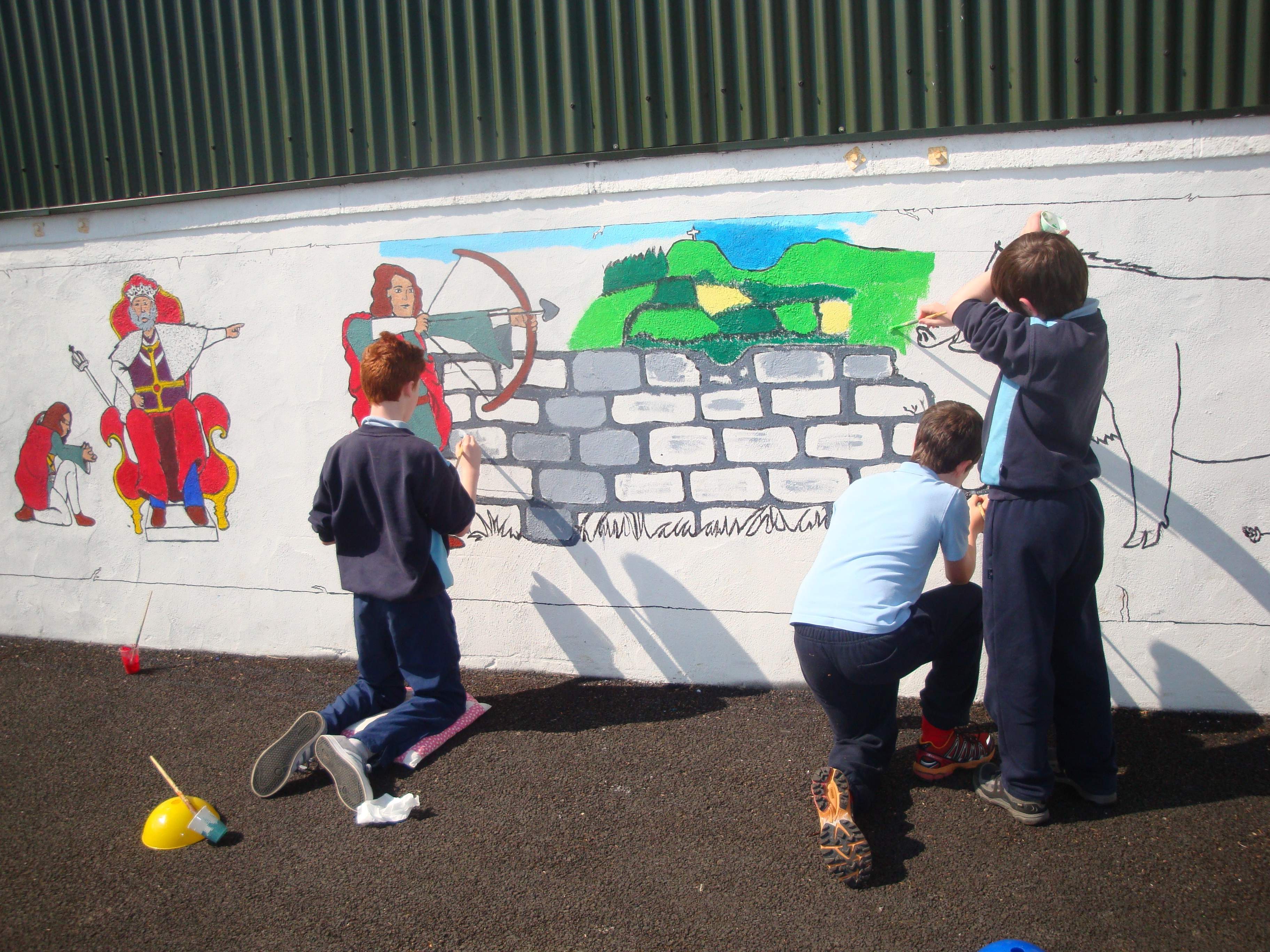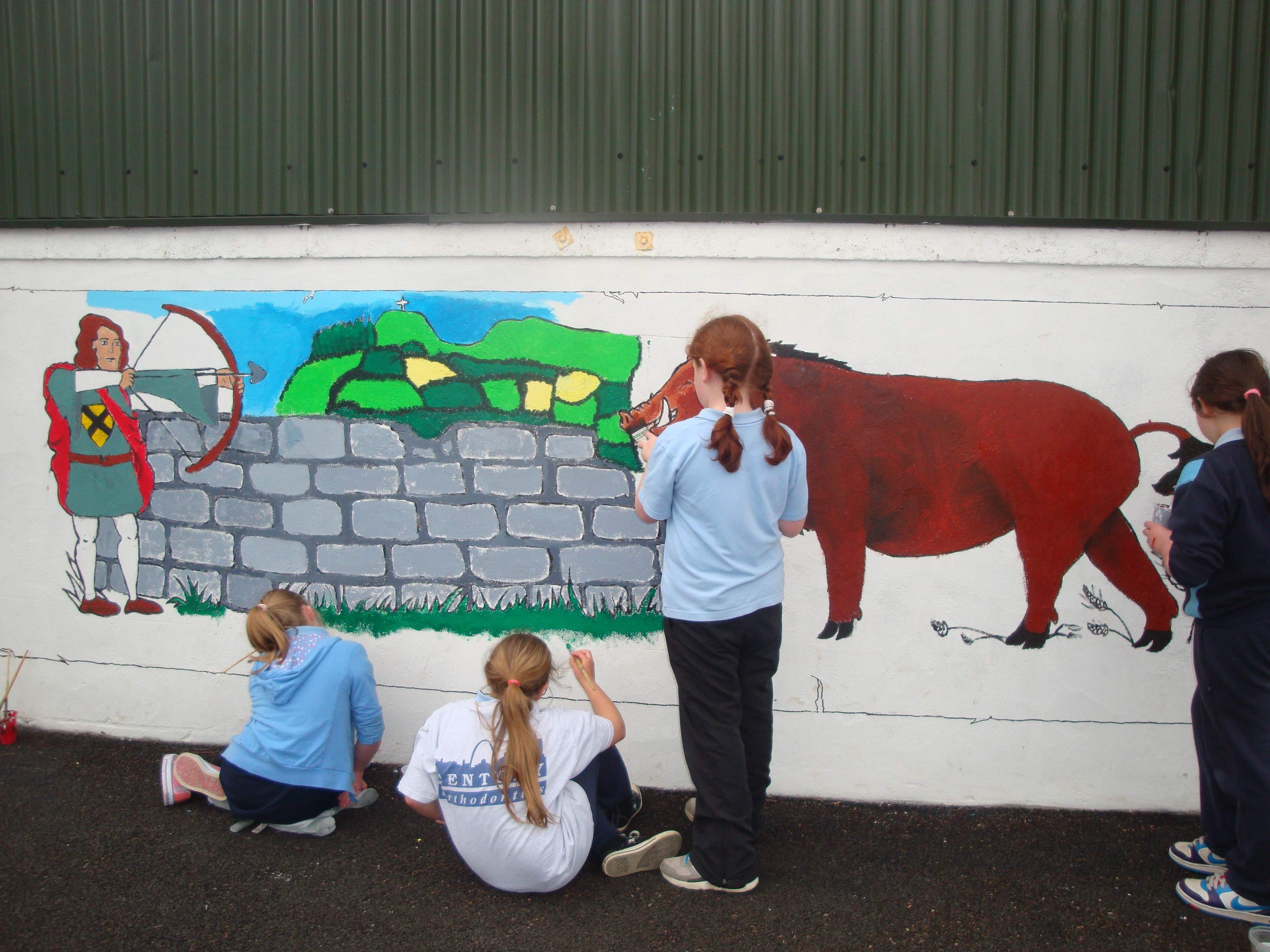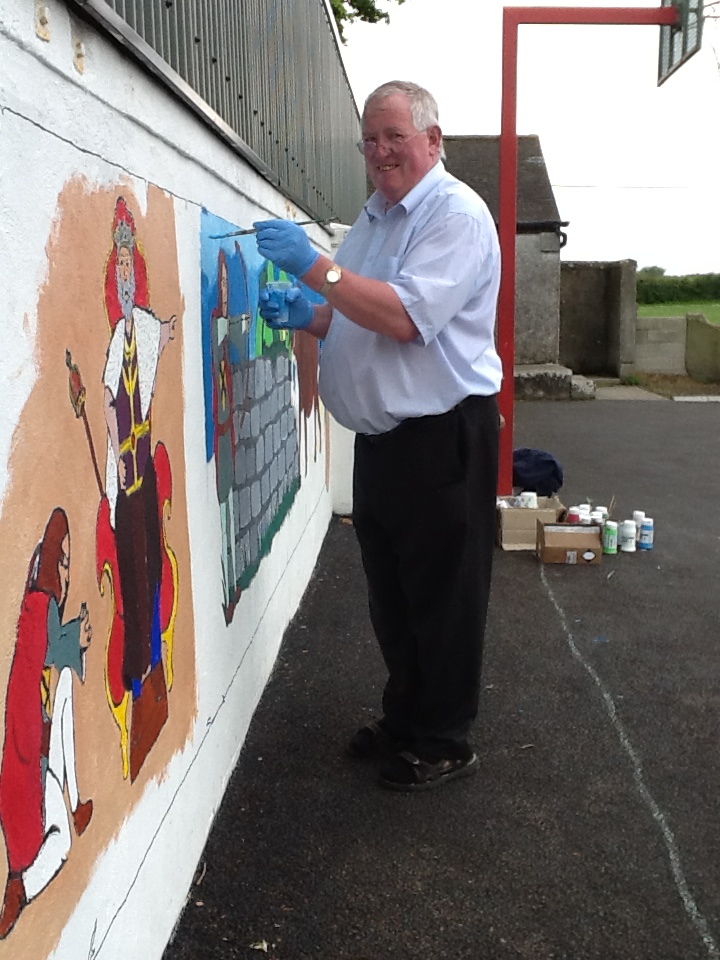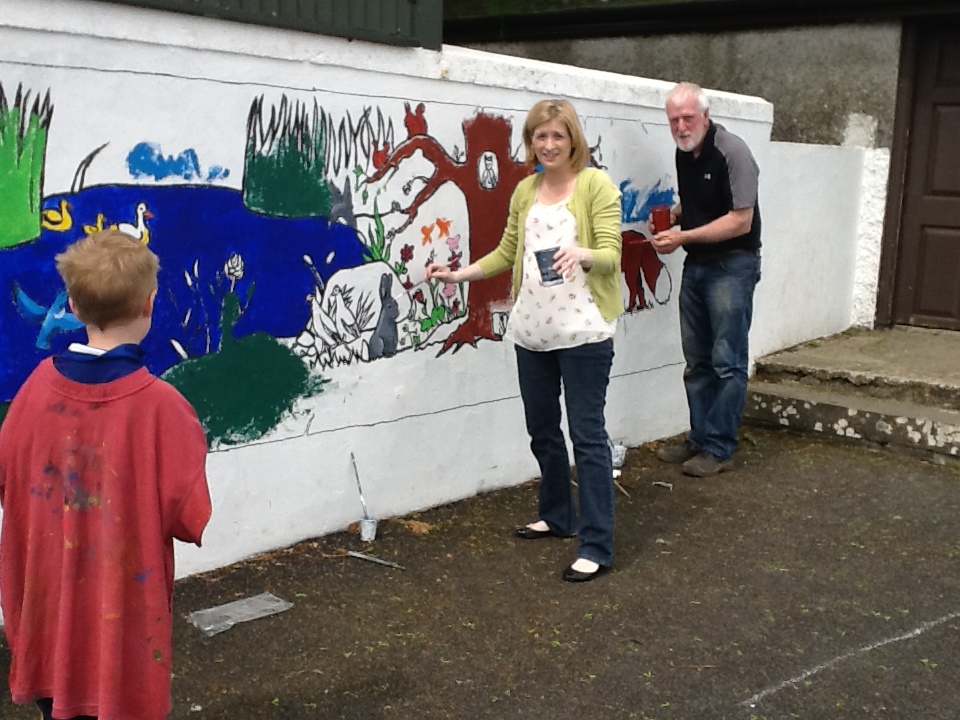Local History...
LEGENDS OF LOUGHMORE CASTLE
Loughmore Castle in years gone by was owned by a king whose name unfortunately is unknown. Now the king had a very big problem or, should I say, two problems, in the shape of a boar and sow of gigantic size who spread terror through the land as they constantly uprooted the crops and killed whomsoever they met with. The king naturally desired to be rid of such unwholesome subjects and promised that their slayer would receive as reward the hand of his only daughter, the castle and as much of the adjacent land as he wished. Many men went forth on this perilous errand but one and all met with the same terrible fate.
At last a youth named Purcell arrived at the castle and craved permission to attack the monsters, which was readily though not hopefully granted. Purcell was told that the boar had moved away to a distant part of the forest while the sow had betaken herself to a place called Coolaculla to rear her young brood. He went in search of her, not walking on the ground but going from branch to branch and from tree to tree, so dense was the forest, till finally he arrived over the spot where she lay. So thick was her skin that the arrow refused to penetrate it, while she, roused to fury, rushed to the tree in which Purcell was, roaring and bellowing in her rage. Seeing that it was of no avail to attempt to pierce her body, he waited his opportunity, and, when her mouth was wide open, he sent a shaft straight down her throat. She uttered one tremendous roar and fell on her side dead.
The boar hearing her death cry came like a hurricane through the wood in the direction of the sound, brushing aside the trees in his path as if they were blades of grass. When he arrived at the spot and caught sight of the dead sow and her slayer, his rage knew no bounds. He reared up on his hind legs against the tree and shook it to and fro in his endeavour to uproot it. Purcell, however seeing that he too was only vulnerable in the one spot bided his time, and sent an arrow between his jaws. At this the boar turned tail, rushed off through the forest, and finally died at some unnamed locality beyond Thurles. In proof there is to be seen the stone on which is carved the boar, and sow and the boneens. This emblem became the Purcell coat of arms. Thus Purcell won the prize and Loughmoe its name.
The second legend brings us some centuries nearer the present day. At the Templemore end of the castle will be noticed a remarkably level stretch of green field. Along one side of this may be seen a long low mound. It is said that one of the Barons Purcell was so enamoured of the game of hurley that he kept a private team of hurlers. The above mentioned field was their playing ground, and the mound served as a kind of “grand stand” for the spectators. Amongst his hurlers one Londergan was undoubtedly the best. A favourite feat of his was to stand at one end of the Castle throw up the ball and strike it with his hurley high over the roof. Quick as lightning he would rush to the far end of the building, strike back the ball before it had time to reach the ground, and so would cause it to pass and repass nine times in all over the castle without ever allowing it to fall to the earth. But he had two grave faults: he was very quarrelsome, and so eager was he for the game that he would never keep his proper place in the field, but must ever be where the ball was. A very important match was to be played on a certain Saturday, and the Baron, fearing Londergan’s quarrelsome disposition, devised a plan to get rid of him for that day.
On Friday morning he gave him a letter, which he bade him carry to a friend in Dublin, some ninety miles away. Londergan, though knowing well the real reason for this, dared not disobey, but promised himself that he would fulfil his task and still return in time for the game. He set off on foot for the City as hard as he could, delivered the letter, received an answer, and finally reached Loughmore on Saturday afternoon, just as the match was about to commence. The Baron saw him approaching, and angrily asked him why he had disobeyed his order. Londergan produced the letter as proof that he had obeyed. It then dawned upon the Baron what had happened, and seeing the terrible state of fatigue he was in, he ordered two of his servants to strip the messenger and put him standing in a keg of butter which happened to be in the castle. This was done in order that his joints might not stiffen. Such an intense state of heat was he in, that he actually melted his way right through the butter, until his feet touched the bottom of the tub. There tradition leaves him, but it is to be assumed that he eventually got out and played that day in the hurley match.
